
Humanities and social sciences prepare Kennesaw State students for universe of opportunities
KENNESAW, Ga. | Jan 10, 2025
In a time when many high-profile careers seemingly require degrees in science, technology, engineering and mathematics (STEM) disciplines, where do those who choose to major in the humanities stand?
For decades now, when higher education budgets tighten, humanities and social sciences have come under the closest scrutiny. A cornerstone of higher education, many humanities and social science courses are part of the core curriculum that all students take, regardless of major, to build a foundation of critical thinking.
Students majoring in humanities and social sciences are finding opportunity and career success alongside the STEM majors in their graduating classes, said Robert Townsend, American Academy of Arts and Sciences (AAAS) program director for humanities, art and culture. Surveys from American Association of Colleges and Universities are showing employers want the types of diverse skill sets and micro-credentials that humanities majors often have.
“Some challenges are that humanities majors often get compared to STEM degrees,” Townsend said. “Some of those degrees get paid more in the first couple years, but humanities degree folks catch up quickly and often financially out-perform their STEM counterparts later in their careers. Compare humanities to everyone else with college degrees, and we’re doing quite well in earnings, career outcomes, and employment rates.”
Humanities and social science majors are learning valuable skills that allow them to be successful in a wide variety of careers, whether tied directly to their specific area of study or across disciplines. They are finding fulfilling careers in the same percentages as those in STEM fields, according to AAAS statistics for Georgia.
Critical thinking, writing and communication skills, understanding systems, and organization of data are among the most valuable skills humanities graduates bring to their careers, Townsend said.
Townsend encourages faculty to put the skills employers say they want in their class syllabi to help students understand the skills they’re practicing have value and that they can articulate those skills to potential employers.
Focus on career tools
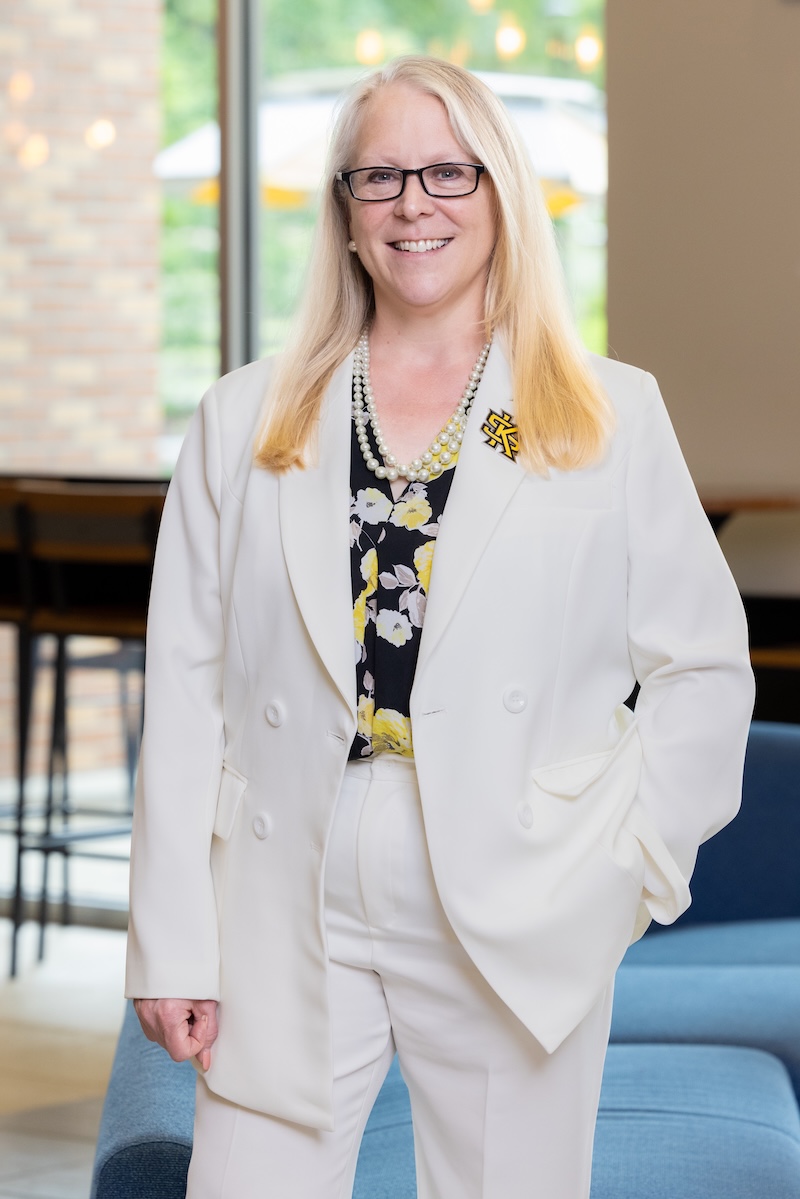
For students majoring in the humanities and social sciences, their career track isn’t always connected directly to their degrees, Kaukinen said.
“For example, ‘I got an engineering degree, and I got hired as an engineer,’” she said. “Humanities and social sciences are more broad, and students need to keep their skills updated and in-demand. We’re working to make sure KSU humanities and social science majors can articulate the skills they’re learning.”
Radow College leaders are developing career maps for all 80-plus majors in the college to give students a picture of the broad range of jobs available to them with the knowledge and skills they acquire at KSU.
Courses in political science include skill sets that can turn into a career. In addition to students learning the history of political parties, decisions, and impacts, they must also understand how to write, dissect and understand and learn the origin of political policies, Kaukinen said. Another example she cited are the hard skills sociologists learn, such as data collection and analysis, visualization and organization.
Kaukinen said a wide variety of businesses benefit from the skills of people who study the humanities, including:
- Humanities and social science majors work in high-tech industries on translation of jargon to lay terms for investors materials, manuals, press releases, privacy/security/safety policies, and more.
- People trained in communications perform valuable roles in areas such as marketing and crisis communication.
- Emerging business roles such as social media management, protocol developers, and product influencers are most often filled by people trained in the humanities.
The Radow College recently held its first humanities and social science-focused career fair. Professors are also including instruction in areas such as statistics in their courses, as well as offering students the opportunity to earn “micro-credentials” certifying their proficiency in a range of career skills.
Prepared for success
Macon-based tax attorney Kort Peterson majored in communications as an undergraduate student at Kennesaw State and uses the skills he honed every day in his work.
“I didn't really have a coherent plan in terms of degree,” Peterson said. “If you had asked me in junior high, I would have said I wanted to be a particle physicist. That concept went by the wayside pretty quickly once I started taking math classes. And so, really, I got into communication studies as a result of writing for the student newspaper.”
When he graduated, Peterson could have pursued a career in journalism, but he wanted to explore other options as well.
Peterson said in addition to his interest in journalism, he was also interested in law and ultimately chose to go to law school. His journalism training has served him well in his law career.
“If your background is not in a journalistic style of writing where brevity is key and clarity is key, the average legal education experience produces a writing style that is obtuse and long-winded,” Peterson said. “And I think that while that may get you good grades in law school, it does not help your cause when practicing law.”
Pauline Melvin graduated from Kennesaw State in 2016, earning a bachelor’s degree in integrative studies that combined her interests in anthropology and Africana studies. She has worked for the United States Agency for International Development (USAID) as a portfolio manager, program specialist and now as a program manager, based in Mali.
“Without KSU, I wouldn't be the woman I am right now,” said Melvin, who enrolled at KSU after having served in the U.S. Air Force. “I came across integrative studies, so I was essentially able to create my own major by merging anthropology and Africana studies. And then I also completed a leadership studies certificate as well.”
A study abroad experience in Ghana confirmed for Melvin that she wanted to work in humanitarian affairs.
“That's when I first met a foreign service officer, and she explained to me what the ins and outs of what a diplomat is, what it looks like abroad, particularly what it looks like in Africa,” she said. “And from that moment on, I literally pivoted my studies and became very deliberate and intentional with what I wanted to do for my career path.”
Kaukinen said that when the value of humanities and social sciences is questioned, it’s most often part of a broader discussion of the value of higher education generally.
Statistics bear out the value of both humanities and higher education overall in leading to a higher levels of employment and financial success than people without college degrees.
The bottom line is that the humanities have value, not only for people who choose to study them as a major, but in education overall.
“All students at Kennesaw State and other universities take humanities and social science courses as part of the core curriculum, designed to lay a foundation of critical thinking,” she said.
– Story by Gary Tanner and Thomas Hartwell
Photo by Matt Yung
This article also appears in the current issue of Summit Magazine.
Related Stories
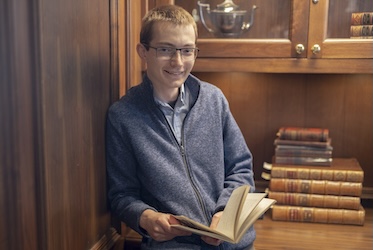
First-year Kennesaw State student, author recognized as versed local historian
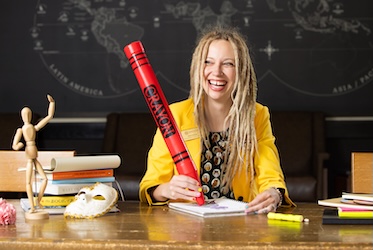
Kennesaw State student leverages Double Owl Pathways program to accelerate career path
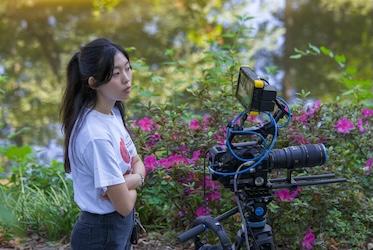
Kennesaw State student uplifts community through film work, fellowship
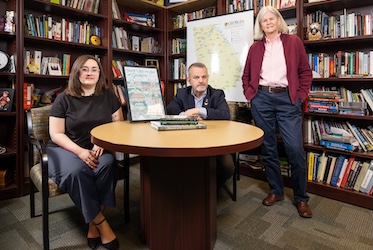
Kennesaw State alumni, professor offer guide to Georgia's historic sites in new book
A leader in innovative teaching and learning, Kennesaw State University offers undergraduate, graduate, and doctoral degrees to its more than 47,000 students. Kennesaw State is a member of the University System of Georgia with 11 academic colleges. The university’s vibrant campus culture, diverse population, strong global ties, and entrepreneurial spirit draw students from throughout the country and the world. Kennesaw State is a Carnegie-designated doctoral research institution (R2), placing it among an elite group of only 8 percent of U.S. colleges and universities with an R1 or R2 status. For more information, visit kennesaw.edu.














